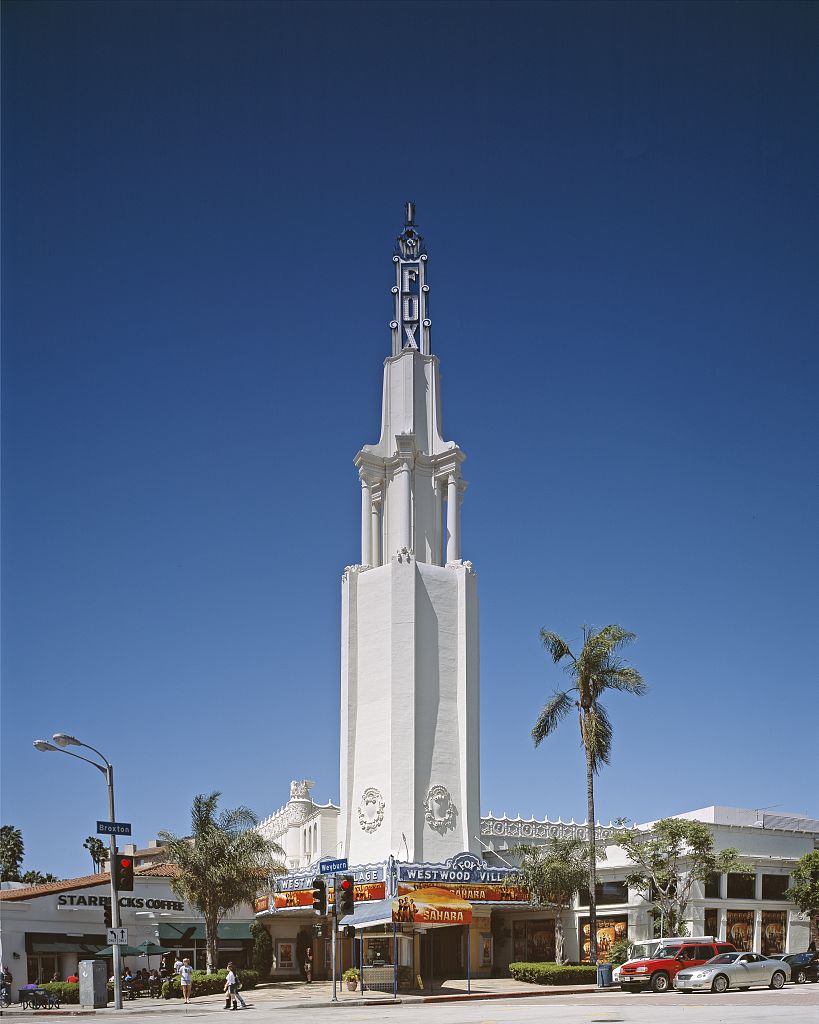Eighty years ago today, the iconic Fox Theatre opened its doors, becoming the first movie house in Westwood Village. Back then, UCLA’s name had just been changed from the “Los Angeles State Normal School” to the “Southern Branch of the University of California.” The northern branch was Berkeley, the only other UC in existence at the time.
When Fox Theatre – also known as the Village Theatre and Regency Village Theatre – opened on August 14, 1931, Hollywood was still happily nestled in its Pre-Code era, before the full implementation of industry censorship standards. The overwhelming popularity of the “talkie” or early sound film, while a relatively new innovation, had only recently begun flooding movie studios with substantial returns.
After several remodeling efforts – some aesthetic, others functional – and equipment updates to reflect changing film technologies, the Fox still retains its distinctive silhouette and a Spanish Colonial Revival-style reflected in much of Westwood Village’s architecture.
It is no secret to those who frequent the village that the Fox often attracts high-profile movie premieres (a Starbucks or Diddy Riese run might turn into a celebrity sighting, especially if extensive roadblocks have been set up already). In 2009, the “Twilight: New Moon” premiere attracted dozens of “Twi-hard” fans to camp out for five days in a line that wrapped around the block. Most recently, “The Change-Up,” starring Ryan Reynolds and Jason Bateman, premiered there on August 1.
Recently, the Fox has withstood widespread single-screen theater closures and met the challenge of the movie industry’s digital revolution. This resilience, coupled with the Fox’s origins in Old Hollywood, may prompt film lovers to feel relieved that the theater was designated an L.A. Historic-Cultural Monument in 1988.
In fact, on that same day, seven other Westwood buildings were also named L.A. Historic-Cultural Monuments, including the Fox’s neighbor across the street, the Bruin Theatre. While such a designation cannot totally protect the location from demolition, it does secure valuable time and resources to aid in its preservation.
Last spring, the Fox narrowly avoided closure thanks to the intervention of Regency Theatres, which has been running the Fox and Bruin Theatres since. It can be easy to forget how much of the present embodies the past, absorbing both its struggles and triumphs. It is no small achievement for a business to endure these days, particularly in a neighborhood like Westwood, where the high turnover for new establishments can be daunting.
Hopefully, the rough financial tides of the future will break far away from the shores of Westwood and leave its theater landmarks free to testify to both the film and architectural history of Los Angeles.
